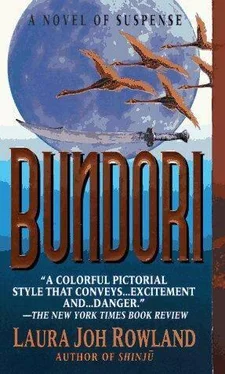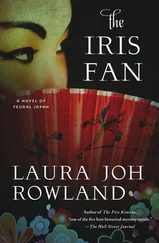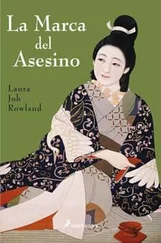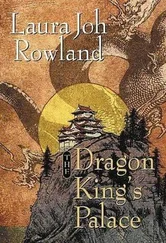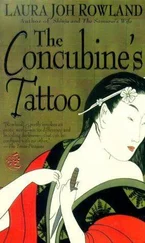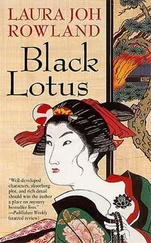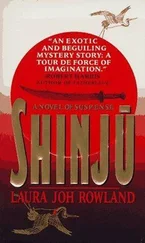“I see,” Sano said, intrigued by both the idea of taking a shortcut to the truth and the prospect of seeing Aoi again. But the murder scene awaited him, as did witnesses, and possible suspects among Kaibara’s family and friends. The painstaking, earthbound search for information must come first. “I’ll come to the shrine tonight.”
“Tonight. Yes.” Taking his words as a dismissal, Aoi bowed again and rose, adding, “For the ritual, I’ll need something that belonged to the victim. To establish a link with his spirit.”
Sano nodded. “All right.”
And she was gone, as unobtrusively as she’d come.
Sano gazed thoughtfully after her, wondering whether her ritual really might lead him to the killer. Then he called the manservant and ordered his horse brought to the gate.
As he left the house, he felt a surge of anticipation that had nothing to do with his assignment. For the first time, he found himself looking forward to night at the castle.
East of Edo Castle and crammed into a narrow piece of land between the great daimyo estates and the Sumida River, the Nihonbashi merchant quarter bustled with commerce. Along the narrow, winding streets, open storefronts displayed their wares: oil in one sector; sake, pottery, baskets, metalware, and soy sauce in others. The smells of charcoal smoke, cooking, and sawdust from workshops behind the stores mingled with those of privies and horse manure in the streets. Merchants sat on the raised floors of their establishments, haggling with customers or shouting come-ons to the crowds:
“The best soy for the lowest price, here!”
“High-quality baskets, come in and see for yourself!”
Beggars shuffled through the throngs, holding out their bowls for alms. Shrieking children careened underfoot. As Sano rode toward the scene of Kaibara Tōju’s murder, he edged his horse sideways past shoppers. But when he neared the pharmacists’ street, he saw that ordinary business there had ceased. In the shops, proprietors and customers ignored the merchandise to stand in the doorways, talking excitedly. Sano could guess why, but the sight that greeted him when he turned the corner surprised and disturbed him nevertheless.
A huge, unruly crowd had congregated in front of the largest pharmacy. Exciting news traveled fast in Edo. It was only a few hours after Kaibara’s body had been discovered, and already mounted samurai, craftsmen in dirty work clothes, and peasants carrying parcels on their backs craned their necks to view what must be the murder scene. Cries of “What is it? Let me see!” clamored. Newssellers distributed hastily printed broadsheets, making sure that word would soon reach anyone who didn’t already know what had happened.
“Read about the Bundori Murder!” they shouted.
So the case already had a sensational name that would increase its notoriety. Sano sensed a contagious atmosphere of fear, horror, and excitement. The shogun had been most concerned about the murder’s political ramifications, but Sano saw another reason for catching the killer quickly: the possibility of mass panic among the townspeople. Where were the police? Why hadn’t they taken steps to control the crowd, or protect valuable evidence? Sano hastily dismounted, secured his horse to a post, elbowed his way through the crowd-and stopped short.
A group of men leaned idly against the shop wall, surveying the commotion. One, a samurai in his late forties wore an elaborate armor tunic over a rich silk kimono and flowing trousers, a surcoat bearing the Tokugawa crest, and a lacquered helmet. With dismay, Sano recognized a former colleague and adversary: Yoriki Hayashi, the senior police commander who’d helped arrange his expulsion from the police force. Two of the other men were doshin -patrolling police officers. Each had the short hair of a low-ranking samurai, wore a single short sword at his waist, and carried a strong steel parrying wand with two curved prongs above the hilt for catching the blade of an attacker’s sword: the jitte , standard doshin equipment. Their assistants, peasants armed with clubs and spears, stood beside them. But surely the police, experienced in criminal procedure, hadn’t waited for his arrival to begin work?
Reluctantly approaching his old enemy, Sano bowed and spoke with forced politeness. “Good morning, Hayashi- san . Why are your men just standing there instead of restoring order or investigating the murder?”
Hayashi’s thin, pinched face stiffened with dislike. “ Sōsakan-sama .” His voice oozed supercilious courtesy, and he bowed mockingly. “So you have descended from your lofty situation”- he raised his eyes toward the castle-“to these squalid environs.” Where you belong, his tone implied. “But why do you expect us to do your work?”
A stab of foreboding pierced Sano’s annoyance at the insult. “The shogun has placed me in charge of the murder investigation,” he explained, “but with the full cooperation of the police.”
Hayashi smirked. “I’ve received no orders to that effect.” Despite the evil relish with which he uttered the words, they carried the ring of conviction. “My instructions were to leave the case in your capable hands.”
He started down the street, motioning for his men to follow. The crowd withdrew to let them pass. Sano realized with alarm that the shogun’s orders had become garbled during their passage through administrative channels. Without the necessary clearances, he had no right to commandeer police manpower. But he couldn’t afford to wait for them. The killer’s trail was already growing cold.
“I insist on your cooperation, Hayashi- san .” He blocked the yoriki’s path and looked him straight in the eye.
Hayashi’s nostrils flared in anger. “ Okashii -ridiculous! Now get out of my way.” His eyes shifted craftily.
Sano knew Hayashi didn’t want to yield, especially in front of his subordinates and the townspeople, but he also didn’t want to risk the possible consequences of disobeying the shogun’s favored retainer. Sano wasn’t sure how far his new authority extended, but he pressed his advantage. “We’ve much work to do. Let’s get started.”
Face taut with fury, Hayashi jerked his head at one of the doshin . “Tsuda. See that the sōsakan-sama gets the assistance he needs.” Then he stalked down the crowded street toward his richly caparisoned horse.
Sano’s relief faded when he recognized Tsuda as the doshin who’d once helped frame him for murder. Now Tsuda’s prominent jaw jutted out farther as he shot a resentful glance after the departing Hayashi. He clenched his jitte , as if longing to use it against both Sano and the superior who had shifted an unwanted burden to him. Then his face relaxed in a grin no more reassuring than his usual sullen expression.
“You, Hirata,” he said to the other doshin . “Assist the sōsakan-sama .” His tone made the title an insult. He fixed Sano with a triumphant leer.
Hirata stepped forward. In his early twenties, he had a wide, innocent face, an earnest gaze, and the stocky body and suntanned skin of a healthy peasant. His three assistants, all men even younger than he, clustered around him.
Sano’s dismay must have shown on his face, because Tsuda guffawed, evidently not caring if he offended. “Investigate all you want,” he said. “But don’t bother looking for the dead man’s remains. They’re already on their way to Edo Morgue.” He kicked the ground in a derisive gesture, laughed again, ducked his head in a perfunctory bow, and left with his assistants.
Sano looked down at the spot Tsuda had indicated. His spirits plummeted lower when he saw that the street’s packed earth was damp and freshly scrubbed. This must be where Kaibara Tōju’s body had fallen, yet no trace of it remained-no clues, if any had existed, and nothing for him to give Aoi for her ritual. He had a field of suspects that potentially encompassed all Edo ’s citizens, and until the shogun reissued the orders to the police, he had no help other than four young men with probably no more expertise than he. Remembering his earlier optimism, Sano couldn’t believe his investigation had begun so badly. Duty, however, demanded his immediate best effort; justice and honor awaited his service.
Читать дальше
